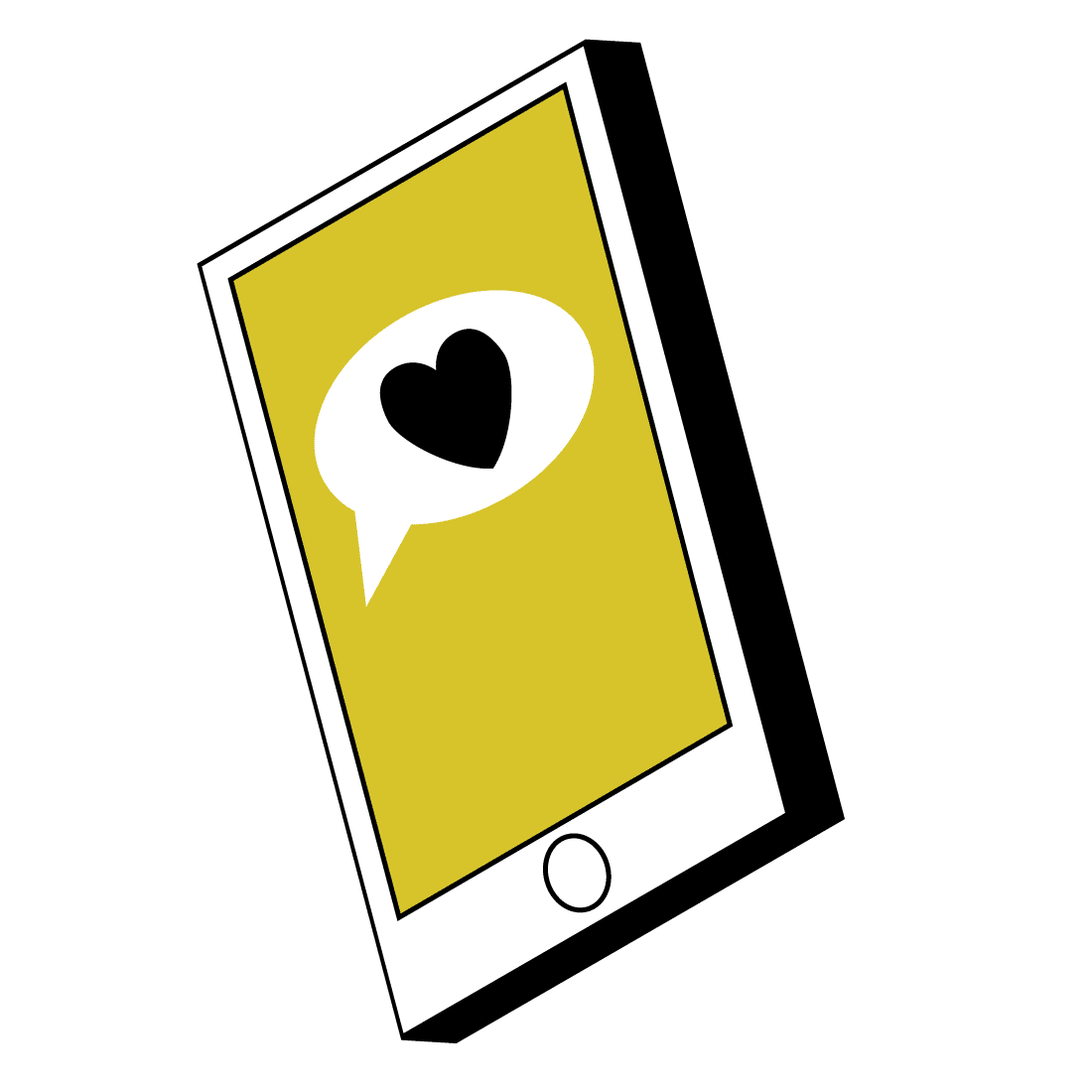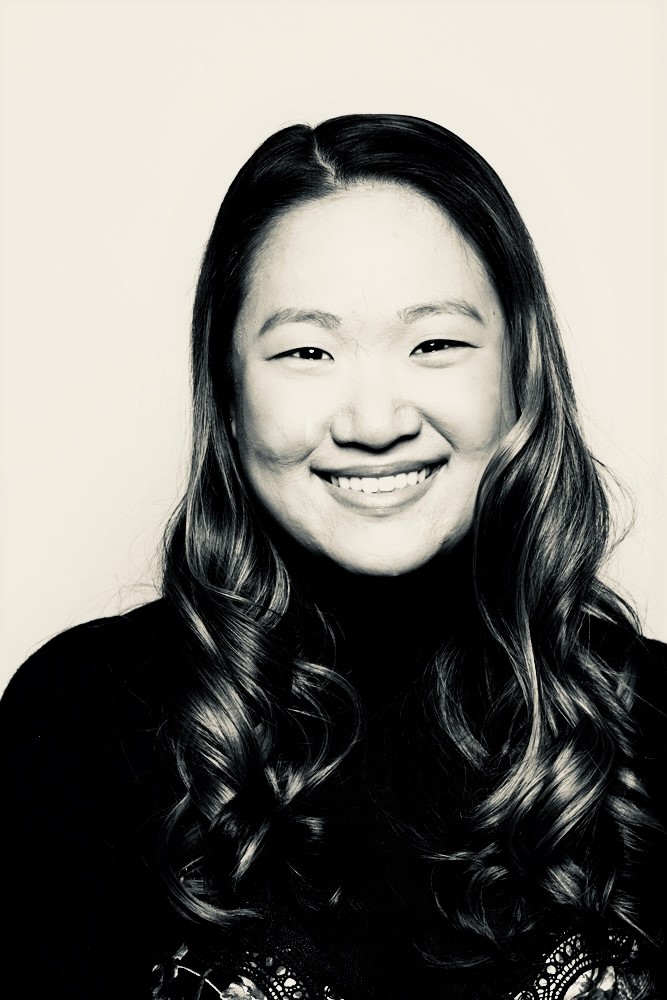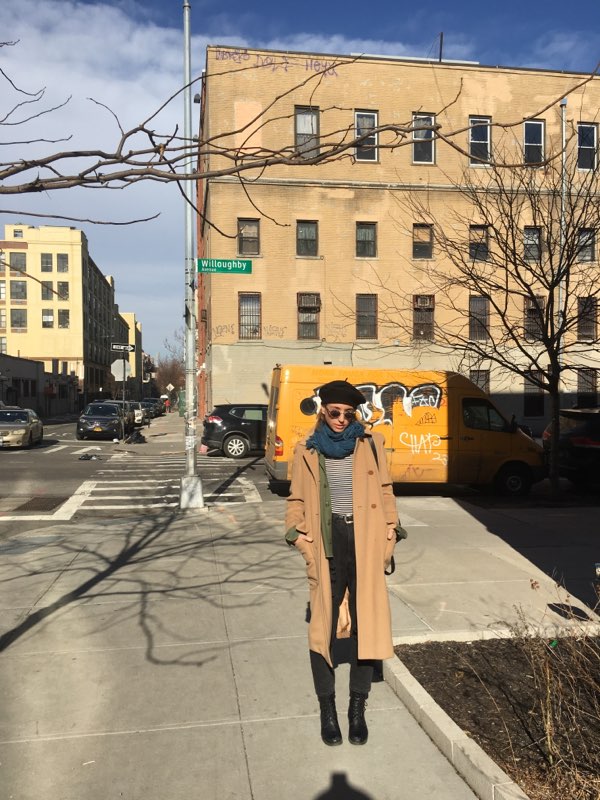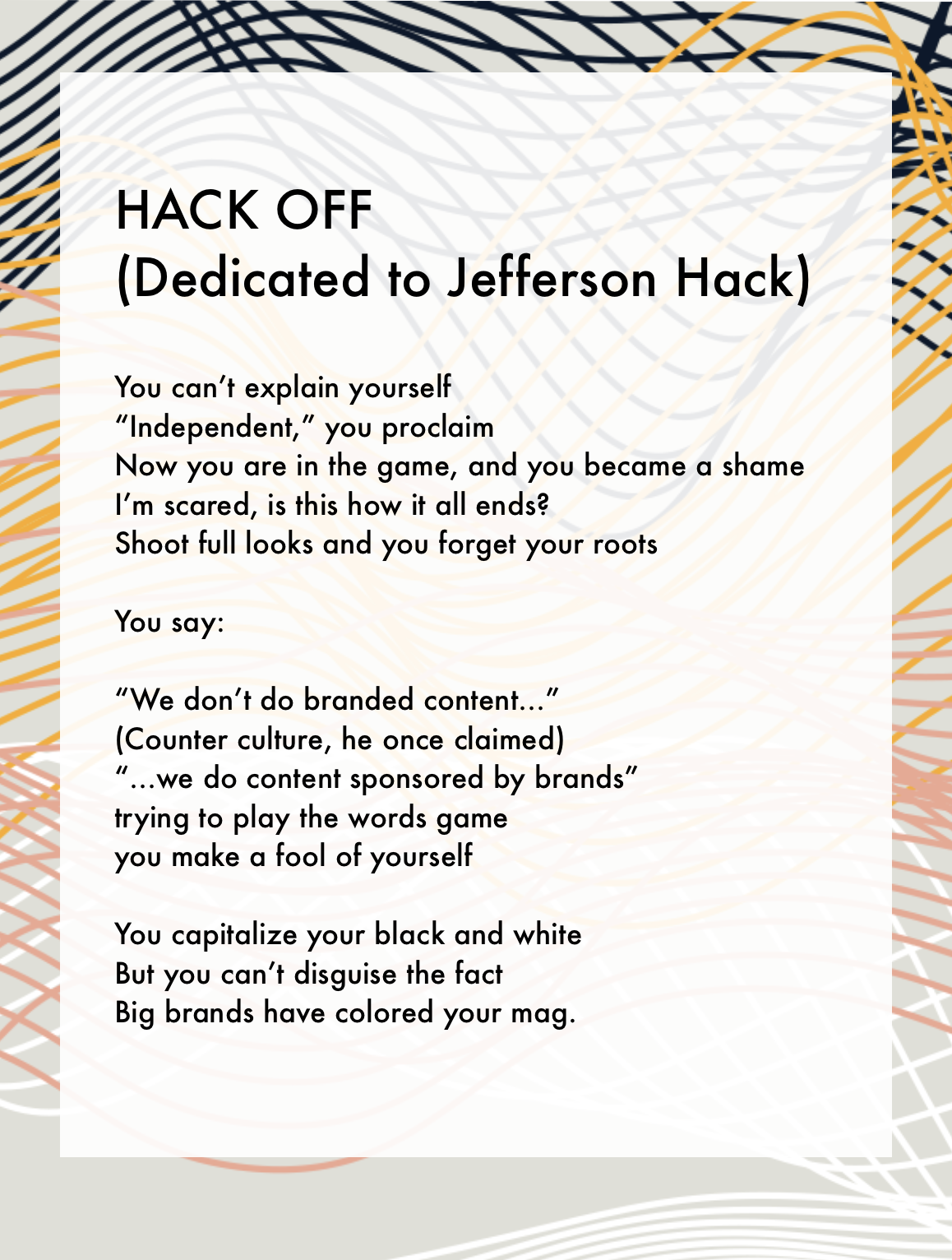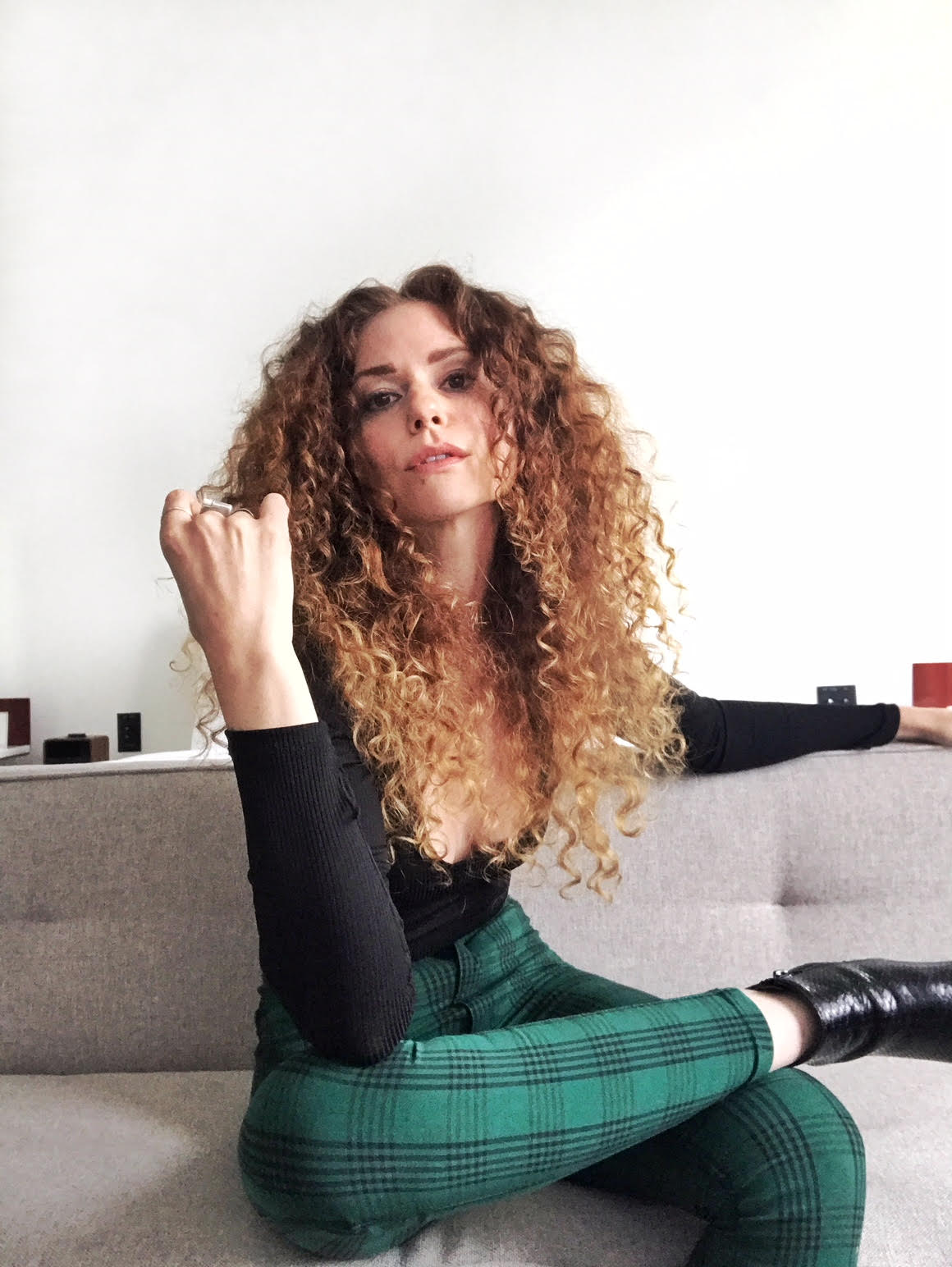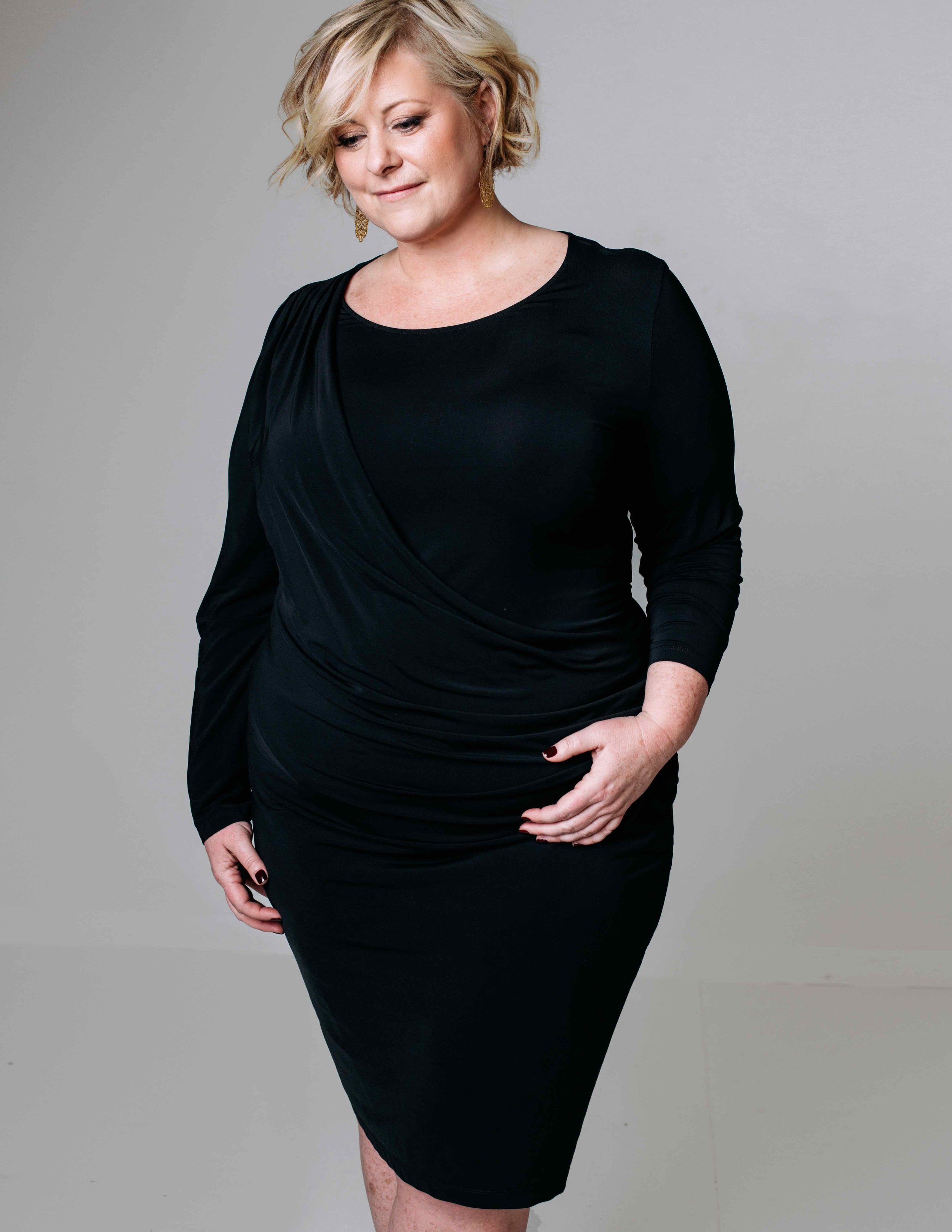The Industry Survey
We reached out to some fashion people working in a range of roles in the industry to find out more about how they see their work and the business. It shouldn’t surprise you to read the one thing most of them have in common: a love of Instagram! Below are their responses, which have been very lightly edited.
Nami Kim, Account Executive, Gucci (New York)
What was your path to this job?
While studying [fashion studies] at Parsons, I was adamant about having a career in the industry but I didn't know what my options were. Aside from shows and magazines, I realized very quickly that I didn't know how the industry worked or how I wanted to be a part of it. I did know what designers and magazines I liked, so I starting emailing their HR departments with my very short resume asking for an internship--any internship. After trying out publishing a Harper's Bazaar and marketing at Rebecca Minkoff, I stumbled on wholesale at Gucci which ended up being a really great fit as it conflated business and product. I interned in the Gucci wholesale department for one year, left New York for Chicago for one year, and then found my way back to the Gucci wholesale department as an official employee. With the internship, I have been with Gucci for five years. For four and a half of those years, I was on the men's side of the business assisting with and overseeing Men's Footwear and Accessories but I accepted the role managing Women's Ready-to-Wear earlier this year.
What does a great day at work look like for you?
Generally, a great day at work for me happens when I have all the answers to my accounts' questions, and when my email inbox is organized. This is consistent during domestic and international work travel as well. A big stress trigger is having pending emails and receiving follow up requests because it makes me feel disorganized and unreliable.
What do you wear to work?
I'm very casual and comfortable in my dress at work. A standard office outfit consists of jeans (rolled at the ankle) paired with a crewneck t-shirt or light sweater (never v-necks; usually white, rarely black), and white Keds from Costco that my dad got for me ten years ago (I'll never throw them away). My hair is almost always up in a bun, my makeup is minimal, and my three Catbird midi-rings complete the look. Playing with the midi-rings have become a nervous tick for me at work, so I panic if I forget to wear them. If I know I'll be seeing a client or an executive from Italy is in town, I'll swap out the Keds for a pair of Gucci shoes--typically loafers or a pair of Princetowns. Even when I'm in market in Milan, I'll maintain my casual look but the tee or sweater will be Gucci. I am fortunate that the outfit/uniform I feel most comfortable in is aligned with the mood of the house since the appointment of the new Creative Director, Alessandro Michele. Prior to Alessandro, I would wear stilettos and LBDs around the showroom in Milan as that was the unspoken expectation, and I was miserable.
How has the job changed you?
I feel silly saying that I'm still adjusting to having a job, but I'm still adjusting to having a job. I find it difficult spending so much time at an office or on the road for work, especially after the scheduling freedom I had during college and graduate school. The lack of time I have for myself and my family -- comparative to my time as a student -- has been challenging. There have been a lot of physical changes that arise from sitting for nine hours/day, which snowball into psychological and emotional shifts as well.
Have your feelings about the industry changed since you started in this career?
Absolutely. I saw the industry through rose-colored glasses which was all attributed to the incredible PR & Marketing and glossy pages of every single magazine. The glitter has faded, but I appreciate it in a different way now. Seeing how hard everyone works to remain relevant -- from big brands to fashion publications -- has been the biggest revelation. Of course I knew that everyone worked hard, but in my naïveté I assumed that a big household name could never go under, but I've seen that the industry is volatile, as it's completely dependent on consumer habits and being able to feed that. Hearing about companies and publications folding, department stores closing, and company layoffs have been difficult because staying alive rests on sales regardless of work ethic, which now directly affects me and my career prospects. Prior to working in the industry, hearing that Teen Vogue is shuttering would be coffee gossip, but now it's received with a pang of fear. Heidi Klum was right all along! One day you're in, the next day you're out--and that's scary and exhausting.
Which of the big issues facing the fashion industry affect you in your position, or those around you?
Aside from consumer volatility, which is nothing new, the biggest issue is the rise of e-commerce and the fall of malls and brick and mortar stores. This directly affects my position industry-wide. With fewer customers going to and purchasing product at department stores, sales and jobs are threatened. This seems to be a unique issue in the US as no other region has as a department store network that's as expansive. In Europe, for example, you have department stores but they're limited to a handful of locations so I feel like they maintain a special feel: Harrods, Selfridges, Printemps, Le Bon Marche, La Rinascente. In the US, Neiman Marcus, Nordstrom, Saks Fifth Avenue, and Bloomingdales have over 200 locations combined. While I don't know how the European stores are actually faring, it's clear from number of locations alone that the investment in department stores is higher in the US than abroad, which means more staff and more potential job loss. Even with a shift in focus to e-commerce, what is to happen to the malls that are peppered around the country in a few years? Where will the teens of America hang out?!
What would surprise people about your job?
How jet-lagged we all are when we decide what's going to be in the stores in six months!
Follow Nami @namimudrick and @bellaofbrooklyn!
Anonymous Casting Director (London)
What was your path to this job?
After studying fashion I did internships in PR, a modelling agency, magazines, and ended up as a styling assistant. I worked on magazine editorials, ad campaigns, and fashion shows, and after seven years of assisting I got a job as fashion and bookings editor at Wallpaper magazine. After a year at the magazine I left to start working with BEAT magazine as fashion editor and Adam Hindle in Casting.
What do you wear to work?
I don’t have a 9-5 full-time job so it really depends what I’m doing that day. But usually, no matter where I am, I’m dressed casually, jeans and shirts, trousers and t-shirts.
Have your feelings about the industry changed since you started in this career?
Completely. While once young, naive, and maybe too eager to succeed in fashion, today I see it as a business that isn’t as shiny, creative and aspiring as I used to. I love my job and I am lucky to be able to choose the people I will and won’t work with but it’s a job that is my livelihood, not only a teenage dream anymore.
Which of the big issues facing the fashion industry affect you in your position, or those around you?
I feel like the biggest issue at the moment in all aspects is working conditions; from sexual harassment, working hours, conditions, etc. As so many aspects in fashion are not unionized or have no proper legal body overseeing rights and safety, there are no red lines that don’t get crossed and no bad behavior that has consequences. Hopefully all the press attention and stories will affect some changes.
What would surprise people about your job?
That it’s not easy and glamorous. It’s hard work, it’s demanding, and a lot more than just picking and choosing faces.
Where do you find inspiration?
In students, Instagram, and watching people on the street.
Emma Kadar-Penner, owner, Friends NYC (New York)
What was your path to this job?
I did my MA in fashion studies and museum curation, which led me to a job at the Metropolitan Museum of Art's Costume Institute as a collections management assistant. At the same time, a friend of mine (who was already a business owner) asked me to partner with her in the formation of a vintage store. I said yes and worked both jobs (plus a part-time teaching job) at the same time. What I unexpectedly discovered was that I much preferred running my own business to working within the confines of a bureaucratic institution. I eventually quit all my other jobs to focus on my business.
What does a great day at work look like for you?
I love buying for the store, so whether it's a trip to the vintage wholesaler, or a trip to the fashion buying market, I love those days. I also like problem solving and figuring out how to grow and expand my business. Days where I can focus on the big picture, as opposed to daily minutiae, are great days.
What do you wear to work?
Whatever I want!
How has the job changed you?
I have become much more business minded as well as a manager, not necessarily qualities I expected to be using in my daily work. I find it exciting and challenging to figure out how to grow a business, and how to become successful. My focus has changed from academic modes of thinking to entrepreneurial ones. There are similarities between the two, and I certainly use my previous educational and work experience to this day, but I have also had to guide my thinking and actions to more practical/functional uses.
Have your feelings about the industry changed since you started in this career?
I have become a lot more jaded! Or maybe realistic is a better word. There are a lot of challenges that we face as small business owners, and I often feel the government is working against, not for, us. I am also from a communist/socialist family, and so participating in the capitalist structure is definitely unexpected. To counteract these challenges, we do as much as we can to give back in ways that are not capitalistic. But, as my communist grandmother said to me a few years ago, "it's fun to make money!" and she's kinda right :)
Which of the big issues facing the fashion industry affect you in your position, or those around you?
The world of retail is changing to online rather than brick-and-mortar. It's scary to see major, long-standing stores go out of business. It's a reality check for sure! I have become much more aware of the economic climate and I try to be one step ahead of socio-economic changes around me.
What would surprise people about your job?
I think there's a somewhat romanticized idea of what owning a business entails. I myself was surprised but how much of owning a business is actually about managing people. And paying taxes. Lots of them.
Where do you find inspiration?
My employees and customers are a big source of inspiration to me. They are mainly young, optimistic, and stylish! It has forced me to face that I am no longer a young person and no longer at the cutting edge of what's cool. But, luckily I'm surrounded by people who are!
Who do you look up to in the industry?
We have been lucky enough to have had a few mentors help us immensely along the way (and especially at the beginning). These have primarily been female business owners who have been running small businesses for many years. Particularly, our friend Erika, who owns a shoe store, and a local coffee and wine store owner, named Talitha.
Follow Emma @friendsnyc!
Maria Echeverri, Creative Director/Researcher, Misinga Consulting (New York)
What was your path to this job?
Nonlinear. Since finishing graduate school, I've worked at 6 different jobs, each addressing a different sector of the industry. That reality has been largely circumstantial, but I also think there is a generational tendency at play -- call it an addiction to over-stimulation. Such disparate experience has led me to cobble together my own distinct offering, which is amorphous at best. Some mornings I panic thinking I have no idea what I actually do, and crave a more traditional, institutionalized professional path, but then I remember how lucky I am to only have to answer to myself.
What does a great day at work look like for you?
I actually enjoy the very beginning of a project, when I can deep dive into research or the very end, when I'm presenting something I know inside and out, because I made it. A great day usually involves either of those, and starts after 10 am.
What do you wear to work?
If I have a pitch or important meeting, I like to wear at least one shade of red.
How has the job changed you?
I've grown to love networking and think it's such an important part of an industry that is so female centered. Collaboration and communication are at the core of fashion and I think that's a consequence of so many women working together.
How have your feelings about the industry changed since you started in this career?
I've really embraced digital. I think if you learn to read digital trends, you can start to predict the future. (Not saying I've figured out how to do this, but it's unbelievable what you can do with data).
What big issues facing the fashion industry affect you in your position or, those around you?
Far and away, its shift to digital and the effects of social media on every single part of daily life; it’s equal parts exhausting and exhilarating. One of my clients is a company that specializes in digital marketing on social media platforms. It's fascinating to see these huge brands try to navigate a shift to digital from traditional advertising. It's such a bulky pivot, and at the same time these teeny brands pop up and just soar because they are so nimble and reactive. It's an exciting moment with so much potential for creative thinkers.
Where do you find inspiration?
Sometimes I think I've found the end of the internet, and then I go to the FIT archives.
Who do you look up to in the industry?
Penny Martin, Cathy Horyn, Emily Spivack, Michael Gaubert.
Follow Maria @misinga!
Donzelle Richardson, Store Brand Creative Experience Leader, Free People (New York)
What was your path to this job?
I started out doing Visual Merchandising with Urban Outfitters in stores across the country. I went on to become a District Visual Manager for UO in Long Island and New Jersey managing 10 stores. I then moved over to Brand Management and launched the athletic brand Without Walls within Urban Outfitters. After a year of wearing both operational and visual hats as the Brand Manager, I wanted to get back to full time creativity and joined Free People as their District Visual Manager for the Mid-Atlantic. I moved over to the Northwest doing to same position and managed 13 stores in the NW and Canada. Just last year I was promoted to be on the Home Office Creative team where I manage the visuals in the West and Central regions. In addition, as a creative team, we create prototypes of seasonal concepts in Philly every quarter and then roll out to all the stores across the country.
What does a great day at work look like for you?
I travel for work each week and help the stores visually overhaul their spaces. This usually consists of a pretty massive workshop over a few days, and involves a lot of planning beforehand. I will update the fixture and floor plan, help the team update wall compositions, work on styling and outfitting. When I get into stores with the team, we plan for a major visual workshop so we can make the biggest impact in a short amount of time.
What do you wear to work?
Free People and vintage mostly :)
How has the job changed you?
With this new role, I travel pretty consistently. It has been a challenge to make sure I look at my overall health and wellness. Also, ensuring I don't burn myself out by overdoing it. My job is very physical so I spend time relaxing, meditating, exercising, and ensuring I eat well while on the road. I love my job but it also means I have to take time for self care.
How have your feelings about the industry changed since you started in this career?
Creative employees have been cut from most retail jobs over the last 2 years. I feel incredibly fortunate that I still have a job in the visual world. I think our positions are very valuable and it feels great to be a part of a company that still supports that idea and pushes our careers forward. I am very curious where this fast changing world will take us in the next few years but it is important to me to be flexible and adaptable during these volatile times in the industry.
What would surprise people about your job?
Most people are surprised by how quickly I can transform a space! I love walking into a store I haven't seen before and working with the team to overhaul the visuals from front to back within a day. It feels very rewarding and not only does it reinvigorate the team but the customers immediately notice the refreshing of the space as well!
Where do you find inspiration?
I am an avid user of Instagram and Pinterest! Online Magazines are important for staying on top of trends. I also find inspiration in local boutiques and vintage stores.
Who do you look up to in the industry?
Stella McCartney, Reformation, Vaute Couture, EcoAlf, Save The Duck, Wills Vegan Shoes, Matt & Nat, Armed Angels, Nicora, and BHAVA. These are all brands that have a very progressive outlook on creating more sustainable products within the industry that will help save the environment and end the needless killing of animals for fashion. These brands show me that there are designers out there who are forward thinking and have a more modern approach to where the industry is headed.
Follow Donzelle @donzellybelly!
Angela O’Riley, Fit Model, New York
What was your path to this job?
I was working with Anne Klein, teaching their patternmakers to use the Gerber system. They started a plus-size clothing line during that time and used me as an in-house model. I quickly realized Fit Models are an important part of the fashion process and decided to try it full time. I was offered a contract with FORD Models and worked with them for 15 years. In 2013, I started my own business offering fittings and consulting.
What does a great day at work look like for you?
A great day starts with meditation and Pilates! Followed by a light breakfast and quick train ride to the garment center. I see between 4-8 clients a day, usually back-to-back with no breaks. The upside is that I see so many different kinds of fashion companies. They are all unique. The downside is that it’s a long day with very few breaks and requires stamina. I try to finish by 6pm and end the whole thing with a hot shower, some dinner, and a little down time.
What do you wear to work?
Anything and everything. I try to wear the clothes I’m developing whenever possible. It’s important to show up at a client looking like a model. The clothes and how you wear them are very important.
How has the job changed you?
I’ve become more confident in a fitting. After all these years, I can quickly identify the key areas of a garment that must be improved for production. My clients rely on my input to make important decisions. In the beginning, I questioned everything. I don’t anymore: I go with my gut and it’s pretty accurate.
How have your feelings about the industry changed since you started in this career?
Fast fashion has diluted a lot of the pleasure in making clothing. Collaboration is at the heart of every company. The way each group completes their work is reflected in the final outcome. Because of the fragmented process designing in one country, and producing in multiple others, it’s difficult to keep the outcome successful. Not impossible, but more challenging.
What big issues facing the fashion industry affect you in your position, or those around you?
Timing. The calendar seems to be shorter and shorter each year. Making the most of the time you have is critical. We have to get the fit right in basically one fitting. Think about it: we see it one time, then they cut 10,000. There is zero room for error. Fittings have to be concise.
What would surprise people about your job?
That it’s so much more than trying on clothes. The following is a list of skills I use daily: Math; Psychology; Prioritizing; Design; Aesthetic; Proportion; Problem solving; Construction and sewing; Identifying fabric inconsistencies; Body management; Patience; Physical stamina. It’s so much more than people think.
Where do you find inspiration?
I’m an Instagram addict. But inspiration can be found anywhere.
Who do you look up to in the industry?
Carolina Herrera and Donna Karan. The clothes they’ve created over the years have made so many women look and feel beautiful. They understand fit and fabric are equal partners with great design. In my opinion, it separates good from great.
Follow Angela @angelaoriley!
